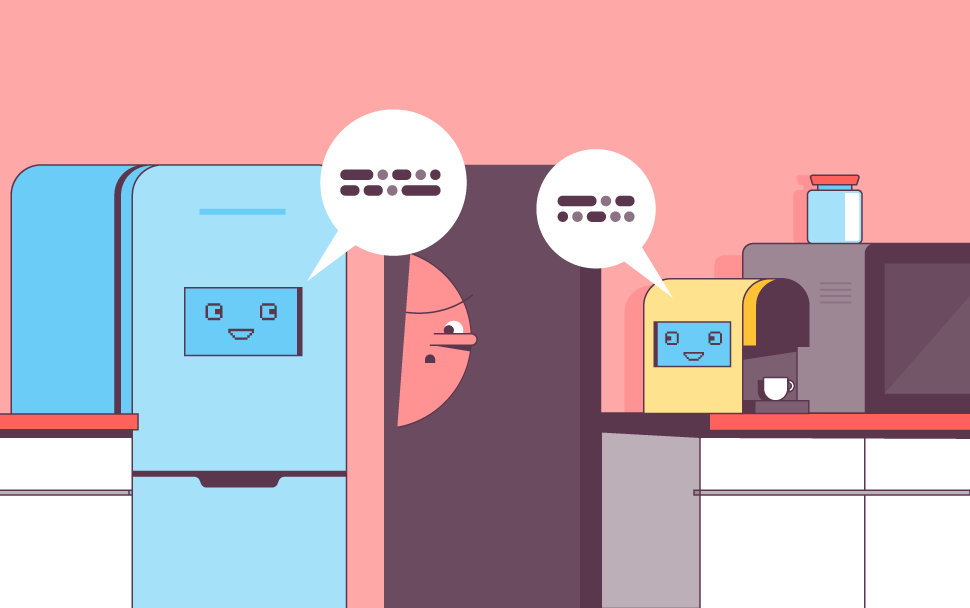
The reason why businesses of any size today get off the ground and thrive with relative ease is due to the existence of IoT. IoT creates opportunities for innovation, allowing for the creation of technologies that were previously thought of as impossible. For small businesses, IoT can help streamline operations from the start, so that businesses owners can focus on growth.
Before we get ahead of ourselves, we should probably give a basic definition. IoT, or Internet of things, is a network of physical objects (“things”) that establish connections between systems and devices, usually via WiFi. These things encapsulate a massive range of objects, from sophisticated devices to various everyday household items. They usually feature software, sensors, and myriad other technologies that enable them to connect and exchange data with other such objects across the Internet.
Some examples of IoT devices, products and services include: smart speakers with conversational AI (like Alexa and Siri), smart home security, wearable health monitors (like Fitbits or professional health care condition monitoring), biometric devices (such as face and voice recognition or fingerprint scanners), interconnected home appliances, GPS tracking, and so much more. There are far too many use cases to list in just one article.
That all sounds great, right? But what does it have to do with small businesses? Let’s get into it.
- Increase efficiency and productivity
Depending on your area of business, utilizing IoT is a likely solution to increasing efficiency across the board. IoT can help with digitizing formerly manual business processes and automating many elements of workflow. Some business communications platforms, such as Microsoft Teams, have begun to integrate voice assistant features which allows for faster note taking, reminder setting, file sharing, and more streamlined communications overall.
- Improve customer service and experience
IoT can help improve customer service in a number of ways. For instance, if you manufacture products, you can embed them with sensors that allow for real-time data collation of customer behavior that can help you adapt to individual customer needs and provide a more personalized experience. This can also help the marketing team come up with more relevant messaging overall. If customers encounter an issue, this data collation will also help with resolving queries as quickly as possible.
- Allow for better data tracking
Devices with sensor technologies have become more affordable over the past few years which has been a boon for businesses of all sizes. These sensors can help with tracking manufacturing and even help make day-to-day operations easier. For example, using barcodes and sensors can allow for easier stock room inventory tracking, while in office buildings sensors can communicate which conference rooms are free or where and when employees spend the majority of their time. Through the use of sensors, management will have a better idea of when to replenish stock, as well as the best time of days to schedule meetings, so as not to interfere with worker productivity.
Wrap Up
These are just a few ways IoT can benefit your small business and help you grow. With IoT devices expected to surge to 125 billion by 2030, it only makes sense that your small business should start looking to adopt IoT sooner rather than later.

Cora is a digital copywriter for SSLs.com. Having eight years of experience in online content creation, she is a versatile writer with an interest in a wide variety of topics, ranging from technology to marketing.